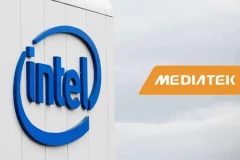- Bechtel will collect and compile the techno-economic studies undertaken by NORI’s partners and contractors required to support its exploitation contract application to the International Seabed Authority
- Data generated by NORI and its partners during the nodule collection system test and monitoring campaign completed in the NORI-D area in December 2022 will form the basis of the techno-economic studies and environmental and social impact assessment that will support NORI’s exploitation contract application
NEW YORK, March 09, 2023 (GLOBE NEWSWIRE) -- The Metals Company (Nasdaq: TMC) (the “Company” or “TMC”), an explorer of the world’s largest estimated undeveloped source of critical battery metals today announced that Bechtel Australia Pty Ltd (Bechtel), a global leader in engineering, procurement and construction will collect and compile the techno-economic studies prepared by various consultants required for NORI to lodge its application for an exploitation contract for its NORI-D Project with the International Seabed Authority (ISA).
Well known for producing large-scale civil infrastructure, mining, power and telecommunications projects around the world, Bechtel’s scope of work is to collect and compile technical and economic studies prepared by various consultants that will underpin NORI’s application to the ISA for an exploitation contract, which the Company expects to have ready for submission in the second half of 2023.
NORI’s strategic partner, Allseas, will undertake the offshore nodule collection, lifting and transport operations for Project Zero in the NORI-D Area using a pilot collection system upgraded into an early commercial production system with a planned production capacity of over one million wet tonnes of nodules, based on operational and environmental data collected during the 2022 pilot trials program.
Gerard Barron, Chairman and CEO of The Metals Company, said: “We are excited to have a company with the proven capabilities of Bechtel involved in our NORI-D project. We look forward to working together and drawing on Bechtel’s extensive experience in mining projects so that NORI can deliver a first-of-its kind exploitation contract application to the ISA and ultimately bring this important resource of energy transition metals online in a responsible way.”
Ailie MacAdam, President of Bechtel’s global Mining and Metals business said: “Bechtel has a long history of developing projects with our customers that are designed to solve the world’s biggest challenges. We need to act with urgency but follow the science to ensure our environmental, social and governance responsibilities are integrated into the project. Accessing energy transition resources in a responsible way is critical to delivering successful solutions and projects.”
In its recent analysis of the critical mineral provisions of the U.S. Inflation Reduction Act, TMC noted that there is currently insufficient battery metal production to achieve U.S. electric vehicle targets, and that its planned full-scale commercial operations (Project One) could potentially deliver three times more nickel sulphate than was produced in 2021 by Australia and the Republic of Korea – the only two leading producers with which the U.S. holds a Free Trade Agreement.
Since forging a strategic alliance in 2019, NORI and Allseas have been working together to develop and validate a pilot nodule collection system including the production vessel, Hidden Gem, which has been successfully deployed in the Clarion Clipperton Zone of the Pacific Ocean lifting more than 3,000 tonnes of nodules to the surface and providing technical demonstration of the system. Last year NORI and Allseas announced they had signed a non-binding term sheet to upgrade the pilot collection system into a production-ready commercial system.
With their limited impurities, polymetallic nodules could significantly reduce mineral processing waste outputs and TMC has worked with metallurgy process experts Hatch to pioneer a near-zero solid waste nodule processing flowsheet to produce nickel, copper and cobalt feedstocks for battery manufacturers. In addition, TMC’s manganese silicate product – which it estimates will account for almost 30% of future revenues – was demonstrated to have significant advantages over conventional manganese ores as a feedstock for silicomanganese production on both cost and CO2 footprint, according to a study by leading European research institution SINTEF.
About The Metals Company
The Metals Company is an explorer of lower-impact battery metals from seafloor polymetallic nodules, on a dual mission: (1) supply metals for the clean energy transition with the least possible negative environmental and social impact and (2) accelerate the transition to a circular metal economy. The company through its subsidiaries holds exploration and commercial rights to three polymetallic nodule contract areas in the Clarion Clipperton Zone of the Pacific Ocean regulated by the International Seabed Authority and sponsored by the governments of Nauru, Kiribati and the Kingdom of Tonga. More information about The Metals Company is available at www.metals.co.
More info
Media | media@metals.co
Investors | investors@metals.co
About Bechtel
Bechtel is a trusted engineering, construction and project management partner to industry and government. Differentiated by the quality of its people and a relentless drive to deliver the most successful outcomes, Bechtel aligns its capabilities to customers’ objectives to create a lasting positive impact. Since 1898, Bechtel has helped customers complete more than 25,000 projects in 160 countries on all seven continents that have created jobs, grown economies, improved the resiliency of the world's infrastructure, increased access to energy, resources, and vital services, and made the world a safer, cleaner place. More information is available at www.bechtel.com.
Forward Looking Statements
Certain statements made in this press release are not historical facts but are forward-looking statements for purposes of the safe harbor provisions under The Private Securities Litigation Reform Act of 1995. Forward-looking statements generally are accompanied by words such as “believe,” “may,” “will,” “estimate,” “continue,” “anticipate,” “intend,” “expect,” “should,” “would,” “plan,” “predict,” “potential,” “seem,” “seek,” “future,” “outlook” and similar expressions that predict or indicate future events or trends or that are not statements of historical matters. The forward-looking statements contained in this press release include, without limitation, statements that waste streams could be reduced by using deep-sea nodules. These forward-looking statements involve significant risks and uncertainties that could cause the actual results to differ materially from those discussed in the forward-looking statements. Most of these factors are outside TMC’s control and are difficult to predict. Factors that may cause such differences include, but are not limited to: regulatory uncertainties and the impact of government regulation and political instability on TMC’s resource activities; changes to any of the laws, rules, regulations or policies to which TMC is subject; the impact of extensive and costly environmental requirements on TMC’s operations; environmental liabilities; the impact of polymetallic nodule collection on biodiversity in the CCZ and recovery rates of impacted ecosystems; TMC’s ability to develop minerals in sufficient grade or quantities to justify commercial operations; the lack of development of seafloor polymetallic nodule deposit; uncertainty in the estimates for mineral resource calculations from certain contract areas and for the grade and quality of polymetallic nodule deposits; risks associated with natural hazards; uncertainty with respect to the specialized treatment and processing of polymetallic nodules that TMC may recover; risks associated with collection, development and processing operations; fluctuations in transportation costs; testing and manufacturing of equipment; risks associated with TMC’s limited operating history; the impact of the COVID-19 pandemic; risks associated with TMC’s intellectual property; and other risks and uncertainties, including those in the “Risk Factors” sections, included in the final prospectus and definitive proxy statement, dated and filed with the Securities and Exchange Commission (the “SEC”) on August 12, 2021 relating to the business combination, in TMC’s Annual Report on Form 10-K for the year ended December 31, 2021, filed by TMC with the SEC on March 25, 2022, and in TMC’s other future filings with the SEC. TMC cautions that the foregoing list of factors is not exclusive. TMC cautions readers not to place undue reliance upon any forward-looking statements, which speak only as of the date made. TMC does not undertake or accept any obligation or undertaking to release publicly any updates or revisions to any forward-looking statements to reflect any change in its expectations or any change in events, conditions, or circumstances on which any such statement is based except as required by law.
















